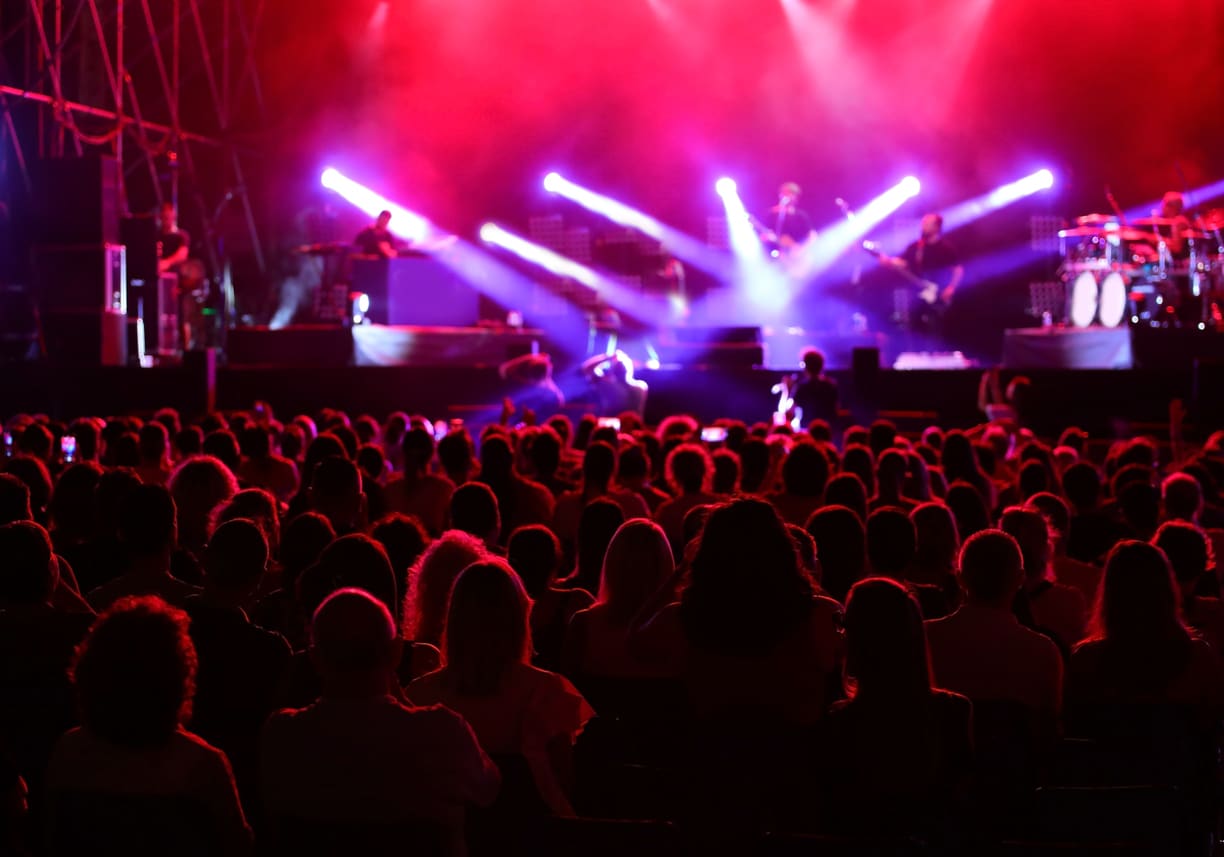Listening to your favorite band play their signature song at The Stomping Ground has all the makings of a great night. One thing you can do to make the evening even better is to watch out for your hearing health.
While it may not sound exciting at first, caring for your hearing health and monitoring signs of damage after a concert is the best way to ensure you can continue to enjoy your favorite music year after year.
How Do I Spot Hearing Damage?

There are a few tell-tale signs of noise-induced hearing damage:
- Ringing in the ears (tinnitus)
- Struggling to understand speech
- Assuming people are mumbling
- Turning up the volume on your TV or radio
- Pain or pressure in the ear
- Balance issues or dizziness
- Trouble hearing high-pitched sounds
You might experience some or all of these signs. In some cases, attending a concert can trigger a temporary threshold shift (TTS), meaning your ears will temporarily become less sensitive to sound. Many with TTS report muffled hearing and tinnitus for a few days following a concert, but don’t have lasting signs of hearing damage.
Can I Prevent Hearing Damage?
Noise exposure is one of the most preventable causes of hearing damage. Before you head to the concert, simply add a pair of earplugs to your bag and wear them during the show. A few different earplug options include:
- Disposable foam. Disposable foam earplugs are a cheap option, great for the occasional concertgoer.
- Silicone. Silicone plugs are inexpensive, reusable and comfortable. Many find them an excellent choice for blocking noise while they sleep.
- Custom-molded. Custom-molded earplugs fill your ear perfectly. You will need to schedule an appointment to get an earmold for custom earplugs.
- High-fidelity. High-fidelity earplugs have filters that dampen noise without sacrificing quality. They’re a favorite among avid music lovers. You can get standard sizing or custom-molded options.
What if I Have Permanent Hearing Loss?
If your hearing doesn’t go back to normal in about a week following a concert, schedule an appointment for a hearing test. We can identify the type and degree of damage and recommend appropriate treatment options.
Contact ENT Associates of Worcester for an appointment with one of our specialists.